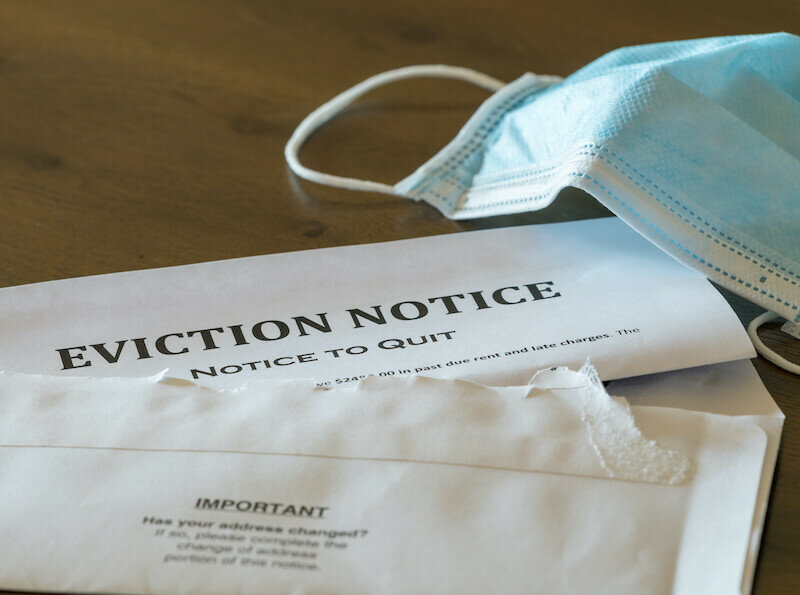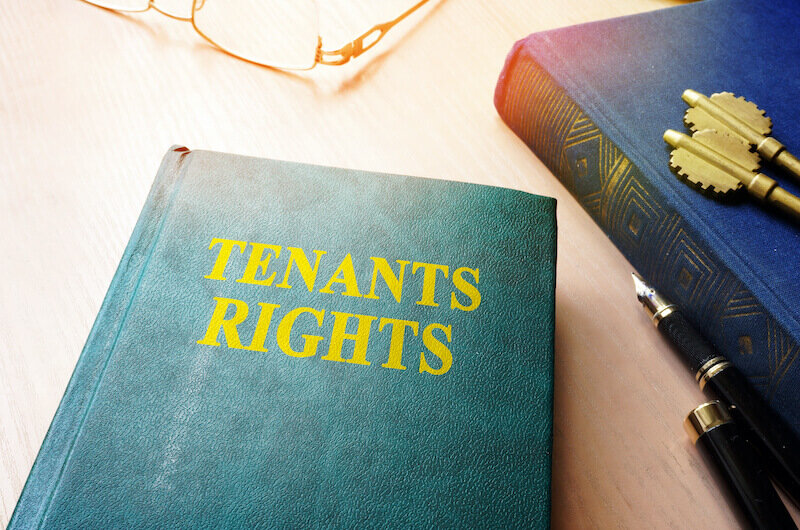
We buy houses in Florida. Ever wondered what’s the actual eviction process in Florida? If you’re a landlord or own property in Florida, do you know what the eviction law in Florida is and how it works? You should make yourself familiar with the eviction process in Florida just in case. You never know when you might find yourself in a situation where you need to be aware of how eviction works.
All it takes is a bad couple of months or a sudden financial curveball and all of a sudden you need to start eviction proceedings on a tenant after serving an eviction notice under Florida law. We are your local Florida home buyers and we have detailed in this post what you need to know about the eviction process. If you’d rather sell your property, we offer cash for houses in Florida.
Being a landlord can be a stressful and draining process, especially if you find yourself in a situation where a potential eviction is involved. Unfortunately, it’s part of owning rental property in Florida, and it’s important to be aware of how evictions in the state of Florida work. Otherwise, you could get in trouble or find yourself unable to get rid of a tenant who isn’t paying their rent and is costing you money. You don’t want to miss out on a chance to get rid of a problem tenant because you made a paperwork error or missed a legal loophole.
Of course, if you don’t want to deal with evictions or you’re just tired of being a landlord, you can always sell your Florida property as-is for cash to Florida Cash Home Buyers. We’ll take your difficult property off your hands and deal with the problem tenants and potential evictions so you don’t have to. But if you want to maintain ownership of your rental property and need to know how to evict a tenant, here’s how the eviction process works in Florida.
The Eviction Process In Florida

What Is Eviction?
Before we can understand what the eviction process is in Florida, we need to be clear on what eviction actually means. Eviction, otherwise known as an unlawful detainer, summary process, ejectment, or summary possession, is the removal of a tenant from a property they are renting from a landlord. However, you can’t just evict someone because you don’t like them. A landlord first needs to win an eviction lawsuit, though the specifics depend on the state they reside in. Every state has its own rules, regulations, and legal requirements. Eviction law in Florida is very different from eviction law in Texas or New York.
Florida Eviction Process Step-by-Step
The eviction process in Florida begins when a landlord identifies a legal reason that a tenant has broken the lease signed between the two parties
Step 1 – The Cause for Eviction
The most common way for Florida’s eviction laws to be used is when the tenant fails to pay rent on time. Unless the lease has a specific date, rent is due in Florida at the beginning of each pay period and is considered late immediately following the due date. So if rent is due on the 3rd of the month, it is considered late on the 4th. There is no requirement for landlords to grant any kind of grace period for holidays or weekends.
At this point, the landlord will provide a three-day notice to pay rent or quit in writing. This gives the tenant the ability to pay the necessary rent within three business days. If the tenant does not pay rent at that point, the landlord can begin the eviction process under Florida law.
Another way that a Florida landlord can begin eviction is if the lease has ended and the tenant has not left the premises. Florida allows a landlord to evict a tenant anytime if there is no lease currently in place or if the lease has ended. The landlord must first provide a lease termination notice to the tenant and give a timeframe that depends on the type of lease that previously existed. If it were a month-to-month lease, the landlord must give a 15-day notice. If the lease was year-to-year, the landlord must provide a 60-day notice. If that notice is not honored, the landlord can move forward with an eviction.
Finally, a Florida tenant can be evicted if they fail to meet the responsibilities and requirements of the lease agreement under Florida landlord-tenant law. There are two types of violations that qualify here. First is the less severe type of violation, like not maintaining an appropriate level of cleanliness to the property or allowing people to remain in the rental unit beyond the terms of the lease. The landlord can provide a seven-day notice to cure and give the tenant a chance to sort out the violation.
The other type of violation is more severe and is meant for situations where there is no remedy that the tenant can provide to satisfy the landlord. This includes major damage to the property, illegal activity in the rental unit, or repeated violations. The landlord can send a seven-day unconditional quit notice that means the tenant has no recourse but to move out or face eviction in the state of Florida if they don’t. Sometimes there are just problem tenants that leave you with no other recourse.
Step 2 – File the Complaint
Once the eviction process in Florida has begun, the landlord can now file a complete with their county court. Usually, the court will require filing fees as well as an additional fee per tenant for every summons that they’ll need to issue. The county clerk will notarize the summons and then it and the complaint are given over to a process service or county sheriff who will then serve the tenant with the information.
The tenant can then decide whether they want to contest the complaint in writing or if they choose not to fight it. If they do want to fight the eviction, that can stretch the Florida eviction process out much longer than you might have wanted. There are a lot of steps involved and the judge could potentially ask both sides to appear at a hearing.
Step 3 – File Motion to Obtain Judgment
If the Florida tenant decides not to fight the eviction, the landlord can then file a motion to obtain a judgment for possession, which basically means they want the tenant evicted. The tenant may be asked to pay the court any remaining rent due, though if there is a disagreement over the amount, the tenant could also ask the court to determine the official number. But if the tenant fails to show up for the court date, they will rule in favor of the landlord. At that point, a Writ of Possession is issued.
Step 4 – Writ of Possession & Removal
At this point under Florida eviction law, the tenant has been given their final notice to leave the premises. It also gives them a chance to remove their belongings in the way they choose to. Usually, they have 24 hours before a sheriff is allowed to come and remove the possessions themselves. And if a sheriff arrives to find the tenant still in the property, they are allowed to forcibly remove them and place a padlock on the door so they can’t re-enter. At this point, the eviction process in Florida is complete.

Florida Tenant/Renter Rights
It’s important as a landlord in Florida to be aware of renters’ rights, for their benefit and for yours. You don’t want to start an eviction process and come to find out that you’ve violated the rights of the renter in doing so. That will work against you in a Florida court.
There are many resources available to both landlords and tenants regarding eviction laws in Florida and Florida tenant’s rights. When in doubt be sure to consult state legal resources as they’ll have the most current and airtight information. And if nothing else, make sure that, as a landlord, you are familiar with the Florida Statutes at Part II, Chapter 83, the Florida Residential Landlord-Tenant Act. A tenant is provided certain rights and protected by certain laws in Florida and any landlord who violates them is putting themselves in danger with the government.
Ultimately it’s the responsibility of both the landlord and tenant to make sure they are meeting the requirements of the lease. However, the strain and financial aspects of being a landlord and dealing with unruly tenants can be a hassle that you may not want to deal with.
Sell My House in Florida
If that’s the case, reach out to Florida Cash Home Buyers. We buy rental properties in Florida and we pay cash for them. We can buy your Florida property fast and we can give you cash for it. Whether you’d like to sell your house fast in Florida, or you’re not in a rush to sell, but just want an easy and hassle-free closing, we promise to do our best to make you a great offer and help you avoid the hassles of dealing with tenants and evictions ever again. We’ll even buy your property if there are still tenants living in it!
Instead of worrying about the eviction process in Florida, sell your house in Florida to Florida Cash Home Buyers today! If you think you need to sell fast, then you may need us. We at Florida Cash Home Buyers are local homebuyers in Florida, and we’re helping local homeowners have a quick and hassle-free sale. If your Florida house qualifies, we can make you a quick and fair cash offer.

